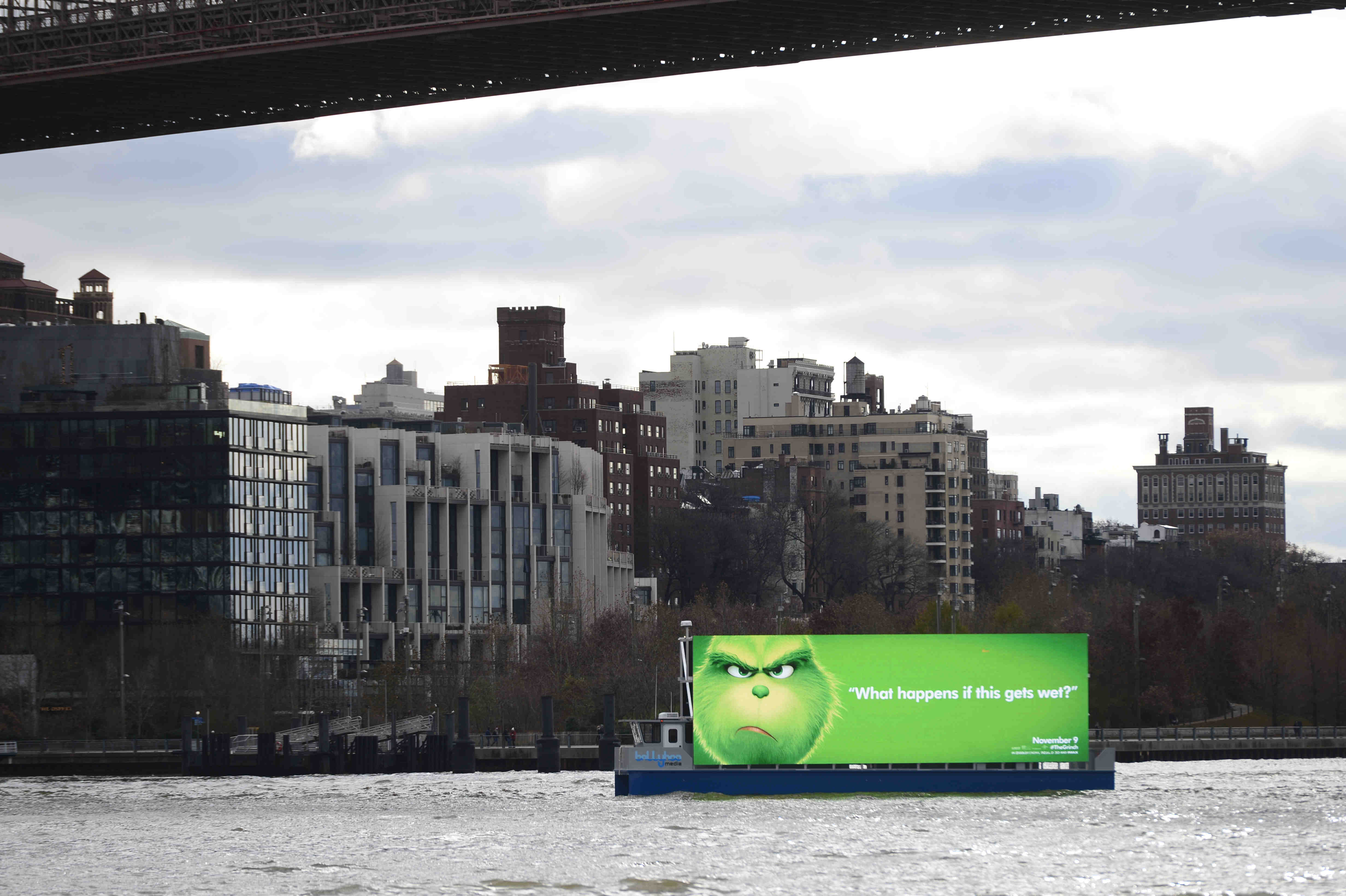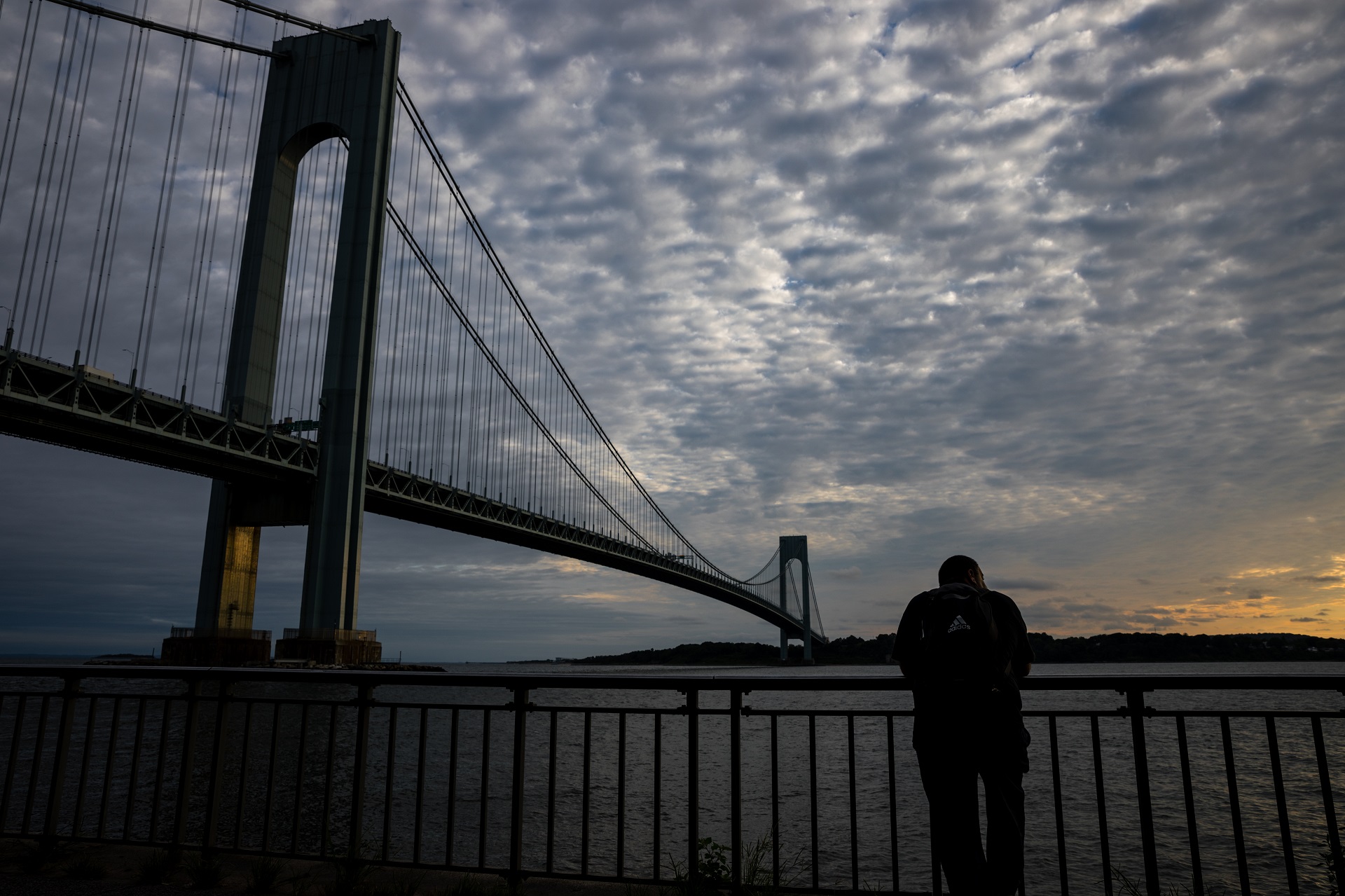Ad barge company claims city has ‘no authority’ over state-owned water
Mayor de Blasio files suit against Ballyhoo Media

Ballyhoo Media will no longer be permitted to operate its advertising barge in New York. Eagle file photo by Todd Maisel
Mayor Bill de Blasio filed a lawsuit on Wednesday seeking to ban a 60-foot-wide advertising barge from operating around New York, but the company behind the boat claims the city has “no authority” to do so.
The law office representing Ballyhoo Media said in a letter to the city that the waters surrounding New York City are actually under the purview of the state.
“As New York State has jurisdiction relative to the lands under the East and Hudson rivers, state legislation is required in order to authorize local legislative bodies to adopt and enforce laws that apply to these bodies of water,” Derek Wolman, of Davidoff Hutcher & Citron, wrote.
